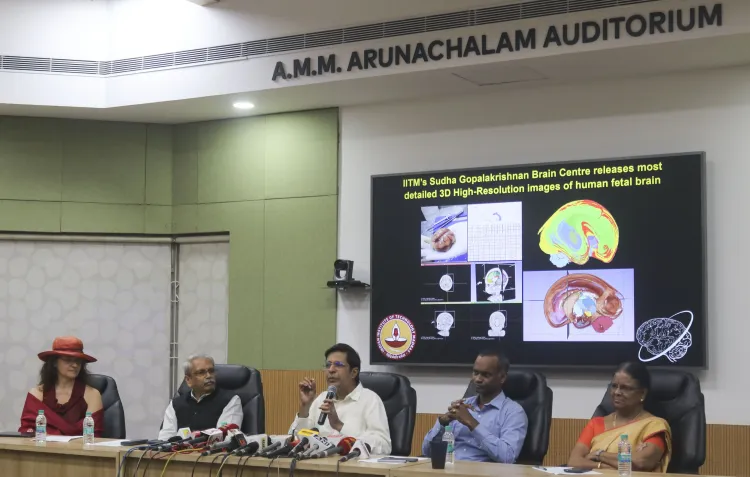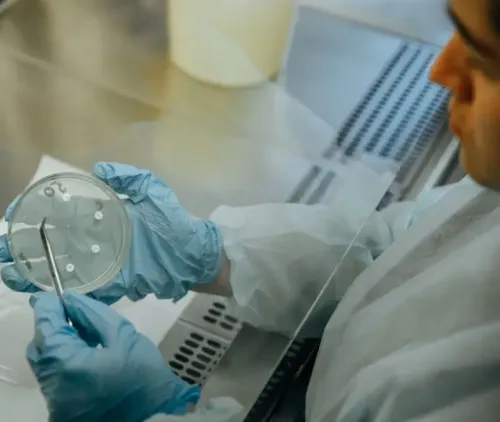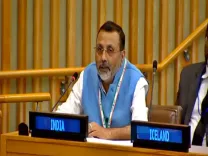IIT Madras Unveils World's First 3D Visualizations of Human Fetal Brain

Chennai, Dec 10 (NationPress) In a remarkable achievement, researchers at the Indian Institute of Technology (IIT) Madras announced the release of the most intricate 3D high-resolution images of the fetal brain.
For the very first time globally, 5,132 brain sections were digitally captured at a cellular resolution utilizing state-of-the-art brain mapping technology pioneered by the team at Sudha Gopalakrishnan Brain Centre at IIT.
This research holds great significance for India, which represents nearly one-fifth of the world's childbirths, amounting to 25 million annually.
Understanding brain development from the fetal stage to childhood, adolescence, and into young adulthood is crucial, especially concerning developmental disorders such as learning disabilities and autism.
“This study will lay the groundwork for new scientific revelations, enabling the quantification of neurodevelopmental disorders and progress in fetal medicine. This is now the largest publicly accessible digital dataset of the human fetal brain, enhancing current knowledge by 20X. This is the first instance of advanced human neuroscience data being produced in India and made available freely as a global resource,” stated Prof. Mohanasankar Sivaprakasam, Head of the Sudha Gopalakrishnan Brain Centre, IIT Madras.
The primary applications of creating such high-resolution brain images include improvements in current fetal imaging technologies, facilitating early diagnosis and treatment of developmental disorders.
This initiative, named ‘DHARANI’, is open-source and aims to propel the field of neuroscience, potentially leading to treatments for conditions impacting the brain.
“I am thrilled that India is pioneering the generation of human fetal brain maps for the first time using this groundbreaking technology developed by IITM’s Brain Centre. We are gratified that our office's support has initiated this groundbreaking work, enhancing scientific knowledge in this emerging area of brain sciences and creating a global resource for researchers worldwide,” remarked Prof. Ajay Kumar Sood, Principal Scientific Adviser.
These findings have been accepted for publication in a special issue of the Journal of Comparative Neurology.









